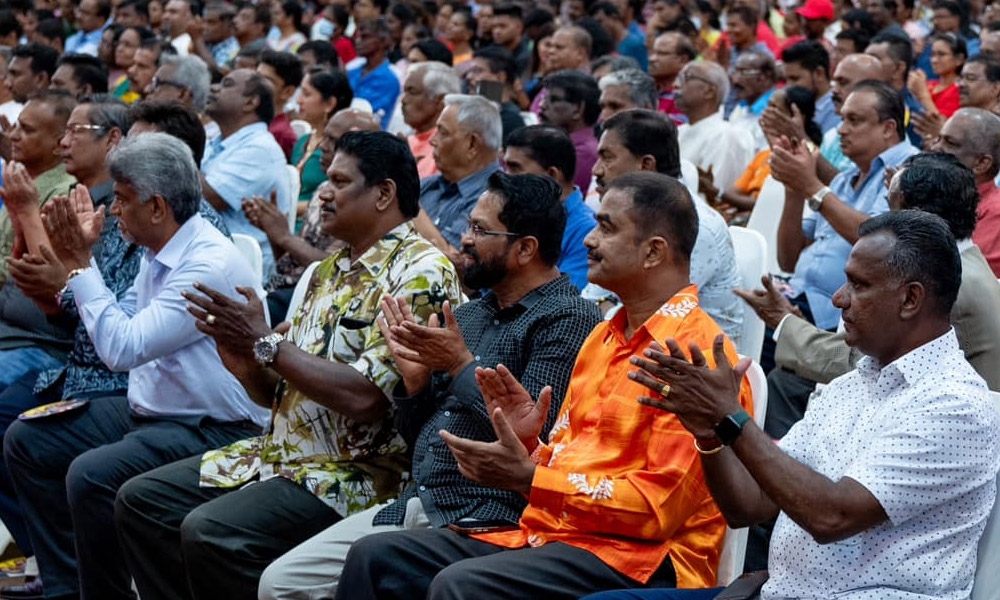LETTER | The Kuala Kubu Baharu by-election is already giving the jitters to Pakatan Harapan and it is going to be tough for them to defend the seat.
This comes as Harapan struggles to explain its poor performance and lack of reforms for the last 18 months since it was elected in November 2022.
The KKB constituency is quite reflective of the racial demographics of the country and has about 50 percent Malays, 30 percent Chinese and Indians make up about 20 percent.
The Selangor government's performance has been no better either as various controversies have bogged the state government such as the incinerator project in Batu Arang, the land acquisition for the ECRL, the PJD Link (Kidex), the Shah Alam Stadium re-development deal and the unresolved disputes over local government posts for BN.
The state government's lack of transparency, good governance and accountability over these issues will have some effect on the polls.
The unity government's promise of reforms will be laid bare for all voters to see and no amount of excuses will suffice to convince voters.

The Indian community, which is very much disappointed at the indifference shown by the government will be able to show their displeasure in this election.
It must be noted by the state Harapan administration that Indian dissatisfaction with the unity government led to two state seats- Ijok and Bukit Melawati - being lost to Perikatan Nasional in last year's polls.
Indians are not as supportive of the unity government as before and their votes will decide the results of the upcoming polls.
Ideally, Indians should have been given two state executive councillor posts instead of one – with more from the community being appointed to local government posts.
Selangor has the highest number of Indians in the country. Umno has been much weakened in recent years and will face an uphill task of winning the Malay votes. The recent polemics involving Umno leaders will have a major effect on non-Malay voters' support.
Another factor is the increasing cost of living and the lack of an effective response to overcome this issue that affects the urban poor and B40 from both the federal and Selangor governments.
Selangor could have opened up large tracts of land for food crop cultivation in the outlying rural districts such as Hulu Selangor, Kuala Selangor and Sabak Bernam.
Escalating cost of living
Recently there was a suggestion by Dewan Rakyat speaker Johari Abdul that cassava (ubi kayu) be consumed as an alternative staple food.
This was the case when there were food shortages brought about by the Japanese occupation during World War II.
Vegetables, fruits and other food prices have skyrocketed in recent times. Selangor, despite being the most urbanised and populous state in the country, is not taking effective steps to help the people through increased agricultural output.
Investments and SME industries need to be dispersed to the outlying districts, and KKB could become more prosperous with increased employment opportunities instead of being regarded as a haven for retirees. Popularising KKB's tourist attractions could also benefit the town folk.
Already we have seen how the Malaysian Indian Transformation Unit (Mitra) has been again transferred back to the Prime Minister's Department after KKB polls came into the picture.
Another RM50 million has just been allocated by Amanah Ikhtiar Malaysia (AIM) for assistance schemes for Indian women to curry their favour for their much-needed votes.
On the other hand, this election will also show how much support the Indians would give to PN despite their apprehensions about the Malay-centric parties.

It will also be a good testing ground for Urimai, the political party led by P Ramasamy, and his lobbying for Indians to support PN.
Urimai will gain much clout and traction as an alternative Indian party that will be a counterweight to the Indians in the unity government if the new party can influence the Indian swing votes for a PN victory.
One key factor to consider is how Indians and Chinese have quickly lost any influence in the government's policy and decision-making processes.
The two communities have been taken for a ride by DAP, PKR and BN and are now receiving only token appreciation for their overwhelming support to the coalition parties.
The views expressed here are those of the author/contributor and do not necessarily represent the views of Malaysiakini.

